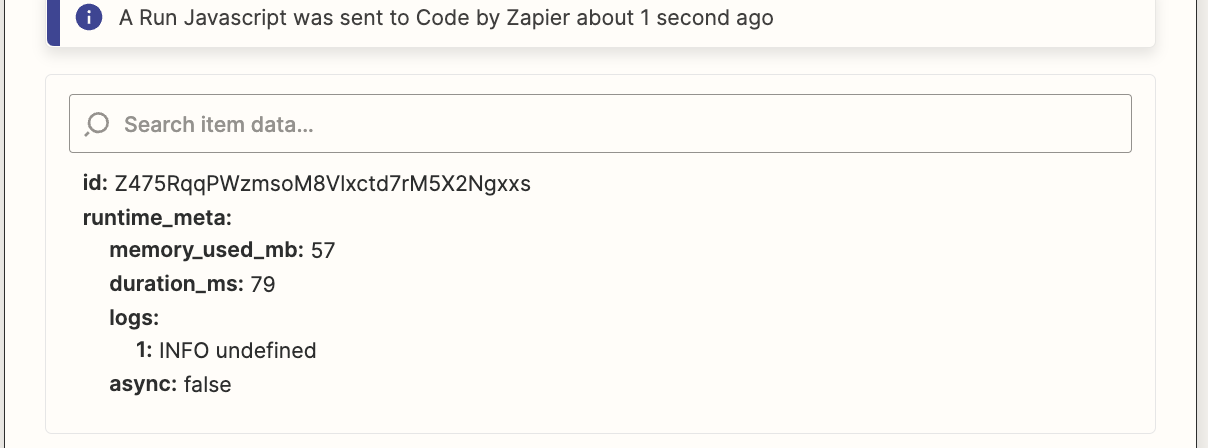I'm using Zapier's code module to write some Nodejs to generate a UUID.
I know that I can use node's crypto "library" because I've used it in the past to hash some text (MD5) to send to an API endpoint. I also know that I can use the crypto function randomInt.
For example, the following will correctly without errors return a number in the stated range:
```
const crypto = require('crypto');
let num = crypto.randomInt(1, 7);
output = [{id: num}];
```
When I try to use the randomUUID function (documentation), like the following, I get the error "TypeError: crypto.randomUUID is not a function" from Zapier. Their logs are showing that the code step cannot find `module 'uuid'`:
```
const crypto = require('crypto');
let uuid = crypto.randomUUID();
output = [{id: uuid}];
```
I almost gave up there, but tried one last weird thing:
```
const crypto = require('crypto');
let uuid = crypto.randomUUID; //changed this
output = [{id: uuid}];
```
Note that I removed the `()` and this didn't throw an error and returned something like:
`LT6TvivKgpFu5Yk3OvQmti1Hq1aNy5ZM`
That looks a lot like a proper UUID since it has the right number of characters, but not the expected hyphens like (for example) `88368f2a-d5db-47d8-a05f-534fab0a0045`
So, two questions:
- Why is Zapier saying that `randomUUID()` is not a function? Does it not support this or am I coding something weirdly wrong or not requiring something needed? Is there a different way to do this?
- When I use `randomUUID` (no `()`) is this actually a reliable UUID?




